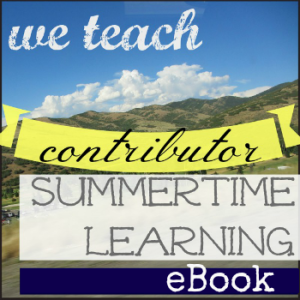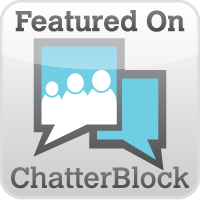When many schools across the U.S. announced that they would continue to rely on distance learning, at least partially, until schools are able to reopen safely, some parents, especially those with means, went into overdrive to organize small-group “pods” for learning and socialization. It’s hard to cast aspersions on any parent, most of whom are already profoundly stretched by juggling the demands of work, household, children and school during this extraordinary time. Yet, a sad consequence of the pods, some of which are able to hire tutors, is that they will further exacerbate the yawning equity gap that already exists in schools and in virtually all our systems, even during “normal” times.
Here are just a few things that happen to lower-income children* during the pandemic, and those whose parents lack the time and means to create and manage a pod:
- Food insecurity when school meals end
- Lack of internet access to do classwork
- Lack of supervision when parents are working
- Lack of proper work space
- Little or no socialization with peers
- Scarce outdoor or physical activity
- Academic and social progress falls further behind
*also rural children, children with special needs, those whose parents don’t speak fluent English or understand the lessons, and more
Educational and other forms of inequity is a huge issue and one I’m passionate about. In that spirit, I’d like to offer a few alternatives to the way the 2020-2021 academic year seems to be shaping up.
Acknowledge the hard work of teachers and parents
All teachers and parents have been heroes. They’ve devoted countless hours and done the best possible work to keep kids educated, occupied and safe, in an exceedingly frightening, ever-changing and uncertain time–often without fanfare or thanks. Teachers have, as usual, had to put in not only extra time but additional personal expense, many while their own kids are at home. Hats off to all.
Rethink the concept of “left behind”
I’ve long thought that the metrics of school academics are skewed to the very top achievers, causing stress and burnout for the rest. Because the entire U.S. is affected by this public health crisis, this would be a great time to pause and reconsider the important aspects of education and when it would be important to learn them. 4th grade isn’t going to look the same this year as it did last year, so why should we use outdated benchmarks as to what a 4th grader should achieve?
Randi Weingarten, President of the American Federation of Teachers (and the closest we have to a national leader on this issue) proposes that we think of the next school year as a bridge year, and begin by addressing the social-emotional needs of children, even before the academic ones.
To that point, parents might wish to form social pods with a few families, to meet (perhaps outdoors) with a rotating parent from the group. This solution provides kids with important interaction with peers, for socialization and learning. (Yes, learning.) Children, especially preschoolers, learn through play, so perhaps this anomalous year will allow us to retire the outdated idea of kindergarten readiness, while allowing older kids to interact for their mental and physical health and stimulation.
Learn outside the box
Schools will still likely provide curriculum, in the form of lectures, assignments and worksheets, but what about the kinds of things that can be taught at home? This could be a great time for kids to explore independent projects and interests. Some ideas:
- Join a citizen science project at home. Or keep a journal for a month to record the phases of the moon or observations in the neighborhood or out the window.
- Prepare food with a parent to learn some planning and math skills by considering steps and measuring ingredients.
- Watch a movie about a different period in history and talk about it afterward.
- Interview family members and write/ draw their stories or make a family tree
- Teach your kids about financial literacy, something they will need in life that they won’t likely get in school.
- As 2020 is an election year, take the time to learn about government and voting and perhaps be a more engaged citizen.
- Read, draw, take walks, play games, cuddle. Do some of the things you think you don’t have time for normally.
Support organizations that are closing the education equity gap
Thankfully, through public and private support, some organizations are rising to the meet the tremendous gap in education opportunities during Covid-19. For instance, the city of San Francisco is refitting libraries, community centers and other public buildings into staffed learning hubs, where young students most in need can access digital classwork and receive help.
Here are some individual organizations that you can help:
Oakland Reach City Wide Virtual Hub is a wonderful model that provides online learning, enrichment and community for the most in need and at risk and pays families to participate. Classes are taught be skilled teachers, and families learn, too, in an effort to close learning gaps at a time when they would only widen otherwise. Read more about Oakland Reach.
Adopt a Classroom’s Disaster Relief Fund helps those across the U.S. who are most immediately in need of technology, supplies, PPE and more, due to Covid-19.
Communities in Schools helps those most in need of food, medical, financial and technological assistance in 25 states and D.C.
First Book delivers books to children around the U.S. who don’t have books or internet access.
The Intercultural Development Research Association is a long-time San Antonio organization that offers assistance to those most in need, in English and Spanish.
National Digital Computer Alliance redistributes donated computers to those in need.
If you wish to help in a specific geographic region try Googling covid relief fund or community foundation and the name of the region.
Support groups that are helping in other ways
This is an excellent and thorough resource from CNN for helping and getting many different kinds of help during the coronovirus crisis–including food, medical supplies, international aid, and support for small businesses, restaurant workers, homeless people, arts organizations and more.
The JFCS Community Emergency Fund helps seniors, families and those most in need, with food, visits, therapy and more, in the San Francisco Bay Area.
Share information and resources
The Center for Children and Youth offers virtual therapy for children, remote parent consultations, online parenting workshops, and professional support for clinicians.
Read 6 Tips for Homeschooling During Coronavirus from NPR.
Read about Creating a Home Classroom for kids with sensory processing or other challenges, from the Center for Children and Youth.
Read 11 Tips to Help your Teen Succeed at Online Learning, from a college senior.
This is an excellent piece from Turn it In that offers with many ideas about adjusting distance learning to make it more inclusive and successful for more students.
This Chalkbeat piece shares national data and takeaways about distance learning in spring, 2020.
NPR outlines some of the gaps that occurred during remote learning.
This crisis has made it abundantly clear that we are all interconnected and need to work together toward solutions. It also provides an opportunity to rethink outdated norms and create greater equity, in education and elsewhere.
Special note to incoming college students: I’m so sorry your high school senior year and entrance to college have been so disappointing. There’s no way to sugar-coat this situation. While some are choosing to take a gap year, many counselors are advising to power through your least desirable required courses online to get them over with, especially if your gap year doesn’t have a strong, particular purpose. You will return to normal on-campus life at some point and have college experiences with your peers.
Here are some tips for Self-care and Wellness for Students during Covid-19, from the Foundation for CA Community Colleges.
Wishing educational success for all, and peace to parents and students, in whatever personal choices they make.
Photos: Pexels Public Domain





























